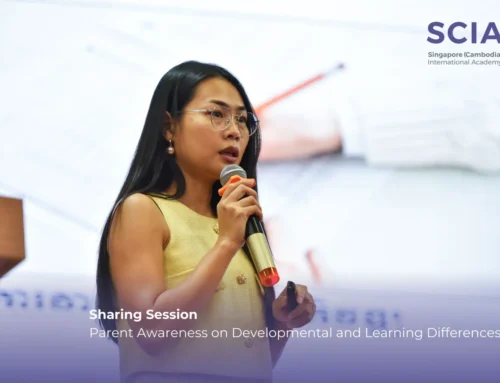In Episode 562 of The Jordan B. Peterson Podcast, Dr. Simon Baron-Cohen—one of the world’s leading autism researchers—joins Dr. Peterson to unravel the deep, often misunderstood layers of autism. Their discussion goes far beyond common definitions, diving into the cognitive science of empathy, the neurology behind systemizing, and the evolutionary importance of autistic traits. This episode is a powerful contribution to how we think about neurodiversity and its place in human development.
Autism: A Different Kind of Mind
Autism is not a singular condition, but a diverse spectrum of neurodevelopmental profiles. Dr. Simon Baron-Cohen, Professor of Psychology and Psychiatry at the University of Cambridge and Director of the Autism Research Centre, has spent decades researching the structure of autistic minds. His theories—most notably mindblindness and empathizing-systemizing—have reshaped how clinicians and educators approach autism.
During the podcast, he emphasizes that autistic individuals often experience differences in how they process empathy. They may struggle with cognitive empathy—the ability to understand what others are thinking—but often retain or even heighten affective empathy, the emotional resonance with others’ feelings. These distinctions are essential. Understanding them means moving away from simplistic narratives that equate autism with coldness or emotional detachment.
The Systemizing Brain
One of the most striking insights from the conversation is the notion that many autistic individuals are strong systemizers. They are deeply drawn to patterns, rules, and logical systems—whether in mathematics, engineering, music, or language. Dr. Baron-Cohen argues that this trait isn’t a flaw but a feature—an evolved cognitive style that contributes to human innovation.
In fact, he proposes that the capacity for invention, from tools to technologies, often depends on minds that are wired to see systems. These minds may not be naturally social, but they are intensely focused and often brilliant in domains that require precision and structure.
This leads to a broader reevaluation of autism—not just as a disability but as a different, sometimes highly valuable, way of experiencing the world.
Evolution, Empathy, and Morality
The podcast also touches on difficult questions: How do empathy deficits relate to cruelty or psychopathy? Can someone be hyper-rational and simultaneously indifferent to others’ suffering? These questions matter—not just clinically but morally.
Dr. Baron-Cohen offers a compelling distinction: while autistic individuals may miss social cues or struggle with intuitive social reasoning, they are not malicious. Psychopathy, by contrast, is marked by intentional harm and a lack of affective empathy. Autism is not a failure of morality—it’s a difference in cognitive processing.
Both experts agree that cultivating environments where neurodiverse individuals are supported—not pathologized—is a moral imperative. This includes recognizing emotional needs, creating structured supports, and valuing different types of intelligence.
Gender and the Empathy Gap
Another thought-provoking segment explores cognitive sex differences. Research shows that, on average, females tend to score higher on empathizing measures, while males often score higher on systemizing ones. This partially explains why autism is more frequently diagnosed in boys. However, Dr. Baron-Cohen cautions against making rigid conclusions—many girls are undiagnosed because they “mask” autistic traits more effectively.
This gap underscores the need for nuanced assessments, especially in educational and clinical settings, where early intervention can significantly alter outcomes.
Autism and Creativity
Dr. Peterson and Dr. Baron-Cohen also explore how traits associated with autism often overlap with creative and intellectual gifts. Attention to detail, intense focus, and pattern recognition are common in both autistic individuals and high-level creators. These overlaps suggest that society would benefit from embracing neurodiversity not as a burden but as a source of creativity and innovation.
Creativity doesn’t always look like emotional expression—it can also look like structured thinking, algorithmic design, or linguistic mastery. In this light, autism becomes part of the broader human palette of cognitive styles.
A Call to Action: Rethinking Support
The podcast ends on a hopeful, forward-looking note: we must rethink how we support people with autism, from how we assess children to how we educate and employ adults. Support should be strengths-based, individualized, and free from stigma.
The implications for Phnom Penh and other emerging educational communities are clear: investing in neurodiverse-friendly programs and early assessment is not just good practice—it’s essential for inclusion and innovation.
If you’re in Phnom Penh and want to better understand your child’s development, OrbRom Center offers evidence-based developmental assessments and individualized intervention programs for children with autism and other developmental differences.
We are the only Preschool specialized on children with special needs in PhnomPenh.
- Internationally qualified teachers
- Cambodia’s largest sensory room
- Outdoor swimming pool
- Covered outdoor playground
📞 Phone: 077.455.993
Telegram Link: https://t.me/OrbRom




